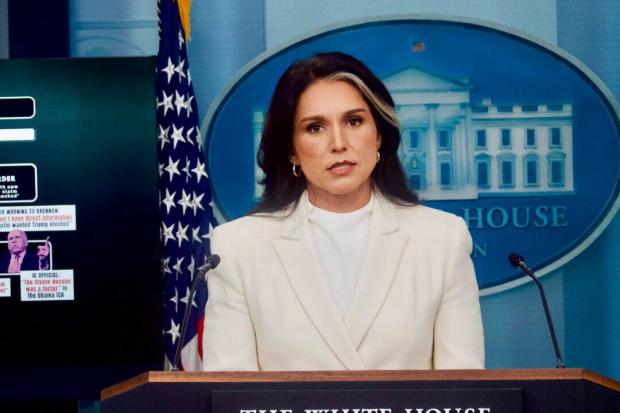
Breaking News
 Elon Tells Rogan the Real Reason Democrats are Prolonging the Government Shutdown [WATCH]
Elon Tells Rogan the Real Reason Democrats are Prolonging the Government Shutdown [WATCH]
 Newsom: Trump Is Trying to Rig the Election -- He Knows GOP Will Lose
Newsom: Trump Is Trying to Rig the Election -- He Knows GOP Will Lose
 There is zero justification for the Department of Justice's silence while the most serious...
There is zero justification for the Department of Justice's silence while the most serious...
 Gabbard Says Trump Has Ended America's Era Of 'Regime Change'
Gabbard Says Trump Has Ended America's Era Of 'Regime Change'
Top Tech News
 The 6 Best LLM Tools To Run Models Locally
The 6 Best LLM Tools To Run Models Locally
 Testing My First Sodium-Ion Solar Battery
Testing My First Sodium-Ion Solar Battery
 A man once paralyzed from the waist down now stands on his own, not with machines or wires,...
A man once paralyzed from the waist down now stands on his own, not with machines or wires,...
 Review: Thumb-sized thermal camera turns your phone into a smart tool
Review: Thumb-sized thermal camera turns your phone into a smart tool
 Army To Bring Nuclear Microreactors To Its Bases By 2028
Army To Bring Nuclear Microreactors To Its Bases By 2028
 Nissan Says It's On Track For Solid-State Batteries That Double EV Range By 2028
Nissan Says It's On Track For Solid-State Batteries That Double EV Range By 2028
 Carbon based computers that run on iron
Carbon based computers that run on iron
 Russia flies strategic cruise missile propelled by a nuclear engine
Russia flies strategic cruise missile propelled by a nuclear engine
 100% Free AC & Heat from SOLAR! Airspool Mini Split AC from Santan Solar | Unboxing & Install
100% Free AC & Heat from SOLAR! Airspool Mini Split AC from Santan Solar | Unboxing & Install
 Engineers Discovered the Spectacular Secret to Making 17x Stronger Cement
Engineers Discovered the Spectacular Secret to Making 17x Stronger Cement
Gabbard Says Trump Has Ended America's Era Of 'Regime Change'

"For decades, our foreign policy has been trapped in a counterproductive and endless cycle of regime change or nation building," Gabbard said. "It was a one-size-fits-all approach, of toppling regimes, trying to impose our system of governance on others, intervene in conflicts that were barely understood and walk away with more enemies than allies."
"The results: Trillions spent, countless lives lost and in many cases, the creation of greater security threats," said Gabbard, a former congresswoman from Hawaii and U.S. Army National Guard veteran.
Gabbard's comments echoed Trump's message earlier this year in Riyadh, Saudi Arabia, where he declared that the era of U.S. "nation-building" was over and that America would no longer impose its system of governance abroad.
"In the end the so-called nation-builders wrecked far more nations than they built, and the interventionalists were intervening in complex societies that they did not even understand themselves," Trump said. "Peace, prosperity, and progress ultimately came not from a radical rejection of your heritage, but rather from embracing your national traditions. ... You achieved a modern miracle the Arabian way."
Trump praised the Gulf states as "forging a future where the Middle East is defined by commerce, not chaos," contrasting their success with failed U.S. interventions in Afghanistan and Iraq, criticizing "so-called nation-builders, neocons or liberal nonprofits like those who spend trillions and trillions of dollars failing to develop Kabul, Baghdad, so many other cities."
Gabbard's remarks in Bahrain further cemented what is shaping up to be a hallmark of Trump's second-term foreign policy—a break from the interventionism of prior administrations in favor of economic cooperation, regional partnerships, and selective use of force.
In a recent assessment for the Hoover Institution, former U.S. Ambassador to Iraq and Turkey James Jeffrey wrote that Trump's Middle East policy "is not isolationist focused on resolving major international problems." The administration, he said, considers the Middle East a continuing priority, seeking to expand the Abraham Accords of Trump's first administration and entrench regional stability amid Iran's diminished leverage.



